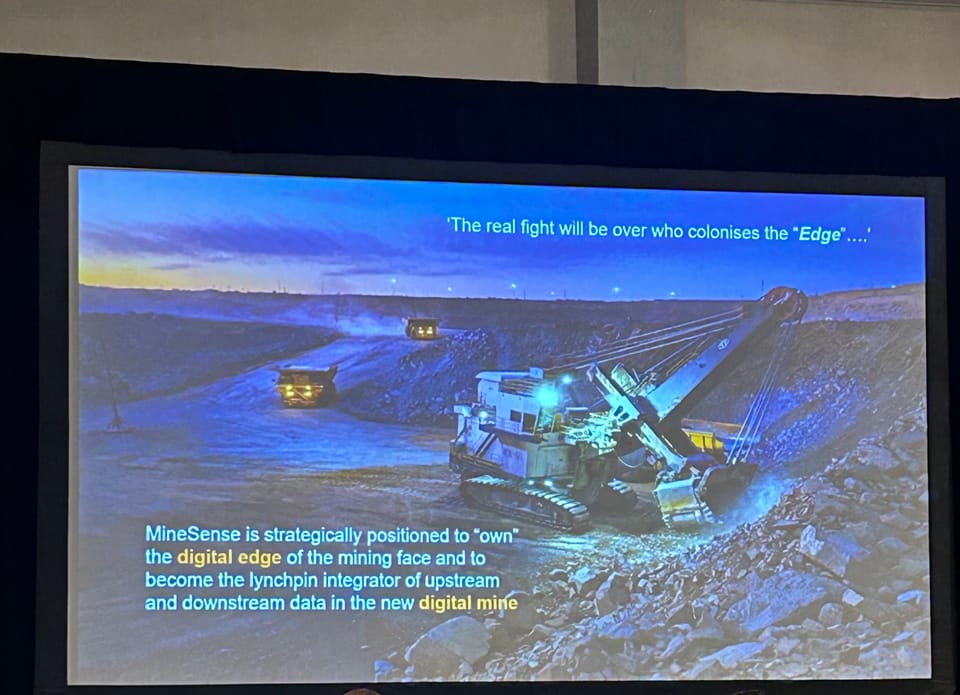What Role *Should* the Fossil Fuel Industry Play on Climate?

I've been working on a few things at once that are all converging around one thing: what should the fossil fuel industry's role be in addressing climate? So far the industry has played whatever role it wants to play, crafting "solutions" that suit it and then funding the research, tech investments, and PR campaigns that turn those ideas into a reality of sorts, if a warped one.
I first got to thinking about this around the lead-up to COP28. And when I say "first got to thinking," I don't mean 2023 is the first time I ever thought about this question, just that this most recent return to it happened in the lead-up to COP, because the rhetoric—from the UAE, yes, but also from folks like Mike Bloomberg, Bill Gates, John Kerry and so forth—was so very much focused on "market-based" and technological "solutions" to the climate crisis. And baked into that idea was what seemed to me like an incredibly naive belief: that the industry that created the climate crisis rather than see even a slight decline in its profits would now decide to go ahead and accept that decline for...no apparent reason. I wrote about this at the time too, and the limits of so-called "eco-modernism."
I was also digging into the myth-making around Dr. Sultan Al Jaber and Masdar and the UAE's "cleantech" strategy, and just how much money and time and PR magic had gone into creating this fable that so many people bought into, so much so that they convinced themselves that appointing the president of the national oil company as the president of the climate summit was not only not a conflict of interest, but in fact a very good idea because who else could hope to convince the entire industry to embrace the idea of being climate leaders? Never mind that, like all of the other oil executives, he was busy working on a plan to expand fossil fuel production. Because of course he was, he is the president of the oil company and it is his job to make money off of oil, how is any of this remotely surprising?
In the course of looking into Masdar, I reached out to an old source from back in the days when I was a cleantech reporter in the Bay Area. As someone with very bad email hygiene, I still had all the 2010 pitches I'd gotten on Masdar and at the time The Cleantech Group had been heavily promoting this "eco city of the future" via its various conferences. None of the folks who were there then are still around, but they are still having conferences so they invited me to the next one. I couldn't make it but our reporter and editor Molly Taft volunteered and wrote this great essay about the experience that we co-published with The Nation this week. Reading it, again, I was struck by the same thought: why does anyone think the fossil fuel industry is going to solve the climate problem? I understand why people want to believe that, I just don't understand why they do given all the evidence of how very unlikely it is. Here's just a snippet of that essay:
Oil and gas companies are not totally necessary to keeping the cleantech industry going, one investor told me; there are plenty of funding sources that aren’t Big Oil. But existing energy companies do make good partners for a lot of startups, and are certainly ponying up some cash for certain ventures. The investor encouraged me to notice which initiatives the fossil fuel funders were taking interest in: not in near-term technologies that could replace or knock out their product, like solar or EVs, but in longer-term ideas that will take a lot of research and capital, and give them room to keep producing as much oil as possible in the next decade. A startup that works in hydrogen or carbon capture makes sense for an oil company to invest in. Besides, fossil fuel companies have a lot of money to throw around, the investor told me, and it makes sense to diversify.
And finally, this week, I was looking up something related to fossil fuel funding of university research, a topic we're constantly digging into at Drilled, and was reminded of a conversation I had with a university administrator last year. He called me up in response to a story I wrote for The Guardian and earnestly wanted to know what the problem was with fossil fuel funding so long as it wasn't going toward more and better drilling. His school was only taking money for solutions, he told me. I asked whether they got a say in what got researched and he said not in any specific way, but that they were only funding research on carbon capture and biofuels. I asked him: "Do you think that so much money and effort would be going into carbon capture and biofuels if the industry hadn't put so much money into funding those, hadn't picked them as solutions?"
At first he said he hadn't really thought about it, and then a few minutes later he said he really wasn't sure whether the science would have led to these particular technologies rising to the top. That research funding then leads directly to a preference in the tech sector for certain "solutions," like the stuff Molly was seeing at the cleantech conference. It also often underpins policy. We have fossil-funded MIT research to thank for the U.S. government going all in on carbon capture as a "climate solution", for example, despite a mountain of evidence that its primary purpose is to allow oil majors to justify increasing fossil fuel production in the face of the climate crisis. I think the best way to understand why people are concerned about the volume of fossil fuel money in university research is to see it as effectively "pre-lobbying," the first step towards getting the policy and tech investments necessary to allow the industry that created the climate crisis to dictate what we're allowed to do about it.
And therein lies the rub: So many people say that oil majors should have a "seat at the table" on climate, should be part of the transition. And what they really mean when they say that is that they don't want to lose out on either the money amassed by these companies or the technical expertise that's been built up within them, both of which will be necessary components to any solution. But can't we have access to both of those things without giving oil company CEOs the power to dictate how the world will respond to the climate crisis? Isn't that what litigation and regulation are meant to accomplish?
This Week's Climate Must-Reads
- "Misplaced Trust: Stolen Indigenous land is the foundation of the land-grant university system. Climate change is its legacy." (by Tristan Ahtone, Robert Lee, Amanda Tachine, An Garagiola, Audrianna Goodwin, Maria Parazo Rose, and Clayton Aldern for Grist) - This incredible project is the result of a year's worth of reporting from a great team of reporters. Not only is this piece terrific, the data has been open-sourced and will no doubt result in lots of great follow-on stories.
- "Why Don't We Just Ban Fossil Fuels?" (by Peter Coy for The New York Times) - I am honestly shocked that the New York Times ran this piece, and I think everyone should read it, circulate it, and praise it so that they take more bold steps like this with their climate coverage. Coy does an excellent job here of laying out the pros and cons, talking about how of course it couldn't be an immediate shutdown but ultimately landing at, as the headline indicates, why aren't we starting down this road? Y'all he straight up compares fossil fuel companies to arsonists in the first paragraph, oh to be a fly on the wall when the API's publicist calls up the NYT tomorrow. Here's hoping they stand strong!
- "Why Dr. Sultan Al-Jaber Needs a Men's Circle," (by Matthew Green at Resonant World) - You might know Matthew as a great investigative reporter, previously at the FT and Reuters, now at DeSmog, but he also runs this terrific newsletter on the intersection of climate and trauma, called Resonant World. He mentioned working on this piece to me ages ago and I have been dying to read it ever since. It does not disappoint!
- [study] "Physics-based early warning signal shows that AMOC is on tipping course," (by René M. van Westen*, Michael Kliphuis, Henk A. Dijkstra in Science Advances) - Scientists have been worrying for a while about the collapse of the Atlantic Meridional Overturning Circulation (AMOC), and this study adds to a growing body of research that indicates that collapse is coming faster than anyone predicted. The implications of which are profound: significant sea level rises threatening coastal cities, drastic changes in the Amazon’s wet and dry seasons, erratic global temperature fluctuations, a warmer Southern Hemisphere, and a dramatic cooling and drying of Europe. You know who did kinda predict this would happen though? Shell in its 1998 TINA report (TINA stands for There Is No Alternative, a report its futurists used to prepare occasionally to game out future scenarios).
- "After $60 Billion Offer from Exxon, Pioneer CEO Changes His Tune on US Oil Industry" (by Justin Mikulka for Powering the Planet) - Justin Mikulka is a great reporter who's been on the energy beat for more than a decade and this piece draws attention to the incredibly important point that in addition to using the atmosphere as its dumping ground, the fossil fuel industry uses the literal earth as its dumping ground too, leaving taxpayers to clean up the mess of abandoned and idle wells that dot the country. "It is very likely Exxon overpaid for Pioneer, but they also have a trick up their sleeve," he writes. " Once the profit is extracted from the Permian, and there will be profits, they can walk away and “flip” the cleanup costs to the U.S. public who doesn’t know that they are being set up to be the greater fool."





